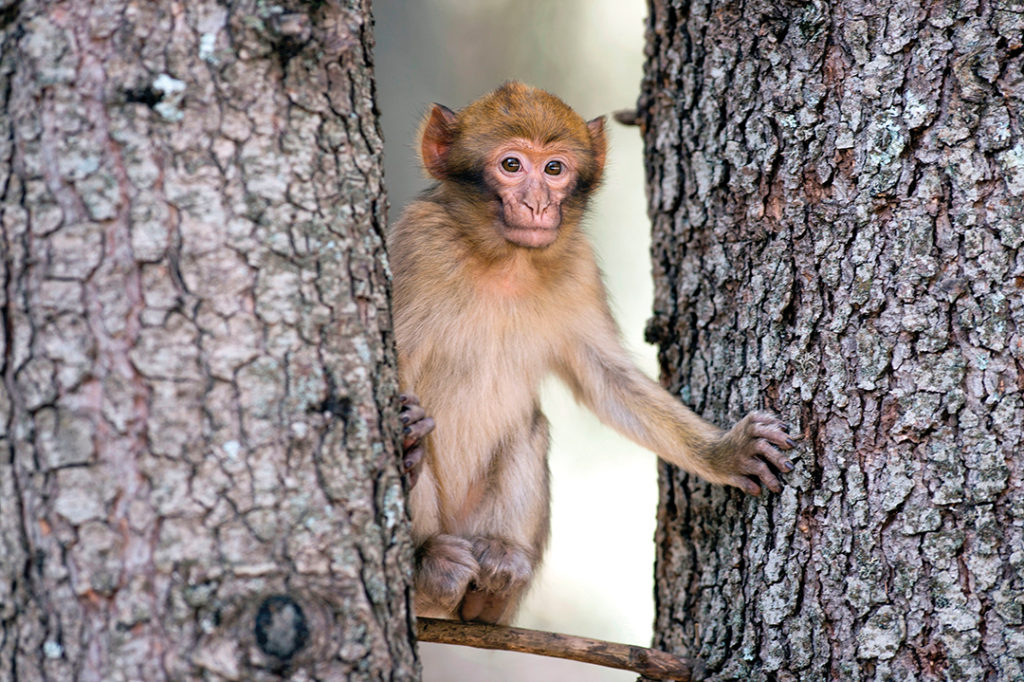AGENCE FRANCE-PRESSE
Ahmed Harrad spends his days crisscrossing northern Morocco trying to persuade locals to protect the endangered Barbary macaque monkey. “If nothing is done, this species will disappear within 10 years,” warns a poster on his aging four-wheel-drive vehicle.
The only species of macaque outside Asia, it lives on leaves and fruits and can weigh up to 20 kilograms. The species once lived throughout North Africa and parts of Europe.
Having disappeared from Libya and Tunisia, it now lives in mountainous areas of Algeria and Morocco’s northern Rif region. Another semiwild population of about 200 in Gibraltar are the only free-ranging monkeys in Europe.
Today, the only native primate north of the Sahara, apart from humans, is in danger of extinction, according to the International Union for Conservation of Nature.
Conservationists blame poaching, tourists who feed the monkeys, and exploitation of the cedar and oak forests that form the species’ natural habitat. In response, Morocco has launched a campaign to save the Barbary macaque. “We are working on two areas — monitoring and making a census of the species in the Rif and raising awareness among locals so that they actively help rescue it,” Harrad said.
As head of a local association, Barbary Macaque Awareness & Conservation, Harrad has become a tireless advocate for the animal. He says it is often sold to buyers in Europe for between $110 and $330 despite laws forbidding the trade.
The North African kingdom never has conducted a nationwide census of the macaque, but scientists believe its numbers fall every year. They estimate that Morocco is home to between 3,000 and 10,000 macaques today, compared with 17,000 three decades ago.
They believe Algeria had about 5,500 Barbary macaques in the late 1980s. Since then, the zones in which they live have been reduced by about half.
Anouar Jaoui, director of Talassemtane National Park in northern Morocco, home to several dozen macaques, said the conservation strategy includes measures to “rehabilitate and rebuild the species’ habitat.” That requires “reducing the pressure from overexploitation of natural resources,” he added.

